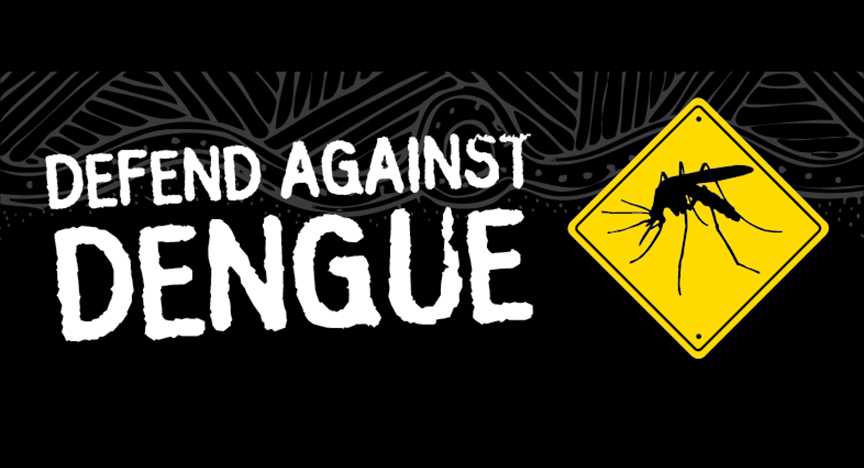
Summary
- An outbreak of dengue fever has been confirmed on Mer Island in the Torres Strait.
- Residents should take precautions to avoid being bitten by mosquitos.
- TCHHS Public Health staff are responding to the outbreak.
Torres Strait, Cape York, and Northern Peninsula Area residents are being urged to take all possible precautions to avoid being bitten by mosquitoes following an outbreak of dengue fever on Mer Island.
Torres and Cape Hospital and Health Service Public Health Medical Officer Dr Allison Hempenstall said four cases of dengue fever so far had been identified in residents or recent visitors to the island.
They are the first cases of dengue fever in the health service region since a single case in 2019.
Dr Hempenstall said a public health team would arrive on the island on 27 May to oversee a program of mosquito control, check for any further cases, and deliver information to residents about mosquito-borne diseases and how to minimise risk.
“They will join with Torres Strait Island Regional Council representatives on Mer Island to undertake spraying of potential mosquito breeding sites,’’ she said.
“While mosquitoes tend to be far more prevalent in normally wetter seasonal conditions between November and April, in the tropical north, they are active all year round.
“But no matter the time of year, our advice to local communities remains the same.
“The very best protection against mosquito-borne diseases is to avoid being bitten by mosquitoes in the first place.’’
Infection with mosquito-borne diseases may cause illness ranging from mild to very serious. Illness may include flu-like symptoms such as:
- pain in muscles and joints
- rashes
- headaches
- fever.
Dr Hempenstall said mosquito control and public education campaigns could only do so much.
“All residents also need to do their part and take action to eliminate mosquito breeding sites on their properties and protect themselves from mosquito bites,’’ she said.
Personal protective measures include:
- Wear light-coloured clothing, (long-sleeved shirts and long pants wherever possible to cover exposed skin).
- Use personal insect repellent containing DEET (di-ethyl toluamide) or Picaridin. DEET and Picaridin are safe for use by pregnant women. Always follow the manufacturer’s directions. Repellents usually only protect against mosquito bites for up to four hours.
- Use long-lasting ‘surface’ or ‘cockroach’ insecticide spray in places where mosquitoes can hide.
- Use other mosquito protection devices such as electric zappers and mosquito coils.
- Install insect screens that are in good working order in your home and office. If not, sleep under a mosquito net day and night.
- Tip it, store it, throw it — tip out water from containers weekly, or dry store containers under cover and discard rubbish properly. Mosquitoes breed in containers that hold water.
- Remember, under the Public Health Act 2005, you can be fined by your local council if your home or yard promotes the breeding of mosquitoes.
“If you follow these simple instructions, you can minimise substantially the risk of being bitten and infected with a mosquito-borne virus,’’ Dr Hempenstall said.
“And remember, even mosquito bites that do not transmit diseases can be harmful.
“Bites can be very irritating and itchy, causing some people to scratch them until they break the skin, leading to secondary infection.’’
To prevent skin infections from mosquito bites:
- Try to avoid scratching the bite.
- Apply calamine lotion or another anti-pruritic preparation to bite areas to prevent itching,
- Keep affected limbs elevated,
- Wash hands before and after touching open wounds,
- Watch skin sores for signs of infection.
If the bite areas become inflamed, clean with soap and water at least once a day, apply an antiseptic lotion and keep covered with a dry dressing.
Application of a cool compress (i.e. icepack wrapped in cloth) also can reduce inflammation. If skin sores become hot, red, swollen, or painful, see your doctor immediately.
Learn more about how to prevent mosquito bites on the Queensland Government website.